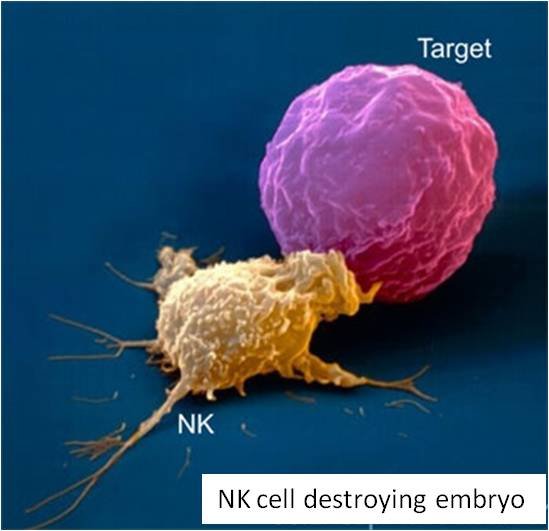
NK cells play a major role in the host-rejection of both tumours and virally infected cells.
NK cells are cytotoxic; small granules in their cytoplasm contain special proteins such as perforin and proteases known as granzymes.
Upon release in close proximity to a cell slated for killing, perforin forms pores in the cell membrane of the target cell through which the granzymes and associated molecules can enter, inducing apoptosis.
The distinction between apoptosis and cell lysis is important in immunology - lysing a virus-infected cell would only release the virions, whereas apoptosis leads to destruction of the virus inside.
NK cells are activated in response to interferons or macrophage-derived cytokines.
They serve to contain viral infections while the adaptive immune response is generating antigen-specific cytotoxic T cells that can clear the infection.
Patients deficient in NK cells prove to be highly susceptible to early phases of herpes virus infection